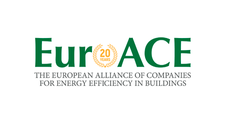Search eceee proceedings
The case of fuel cell micro-cogeneration in an increasingly integrated, flexible and low carbon energy system
Panel: 8. Buildings: technologies and systems beyond energy efficiency
Authors:
Benedetta Di Costanzo, COGEN Europe, Belgium
, PACE project partners
Abstract
Europe’s energy sector is undergoing significant transformations in response to climate change, energy security, air pollution and increasing energy costs. While addressing climate change has made the case for higher uptake of RES electricity, the intermittency of power from wind and sun, coupled with an increasing electricity demand, leads to an important system adequacy challenge. The electrification of heating in buildings alone is expected to more than double peak demand,causing winter peaks in particular to be likely supplied with inefficient and non-RES electricity in the short/medium run, putting a strain on electricity grids and countering decarbonisation.
Given these challenges, a new energy systems integration paradigm is emerging, aiming to break silos in energy across the different energy networks and markets. Fuel cell micro-cogeneration(FC mCHP) can enable the move towards sectoral integration, by providing flexibility, efficiency and decarbonisation between electricity, heat and gas systems at local level. Dispatchable FC mCHP mitigates the expected peaks caused by electrification, complementing demand response, energy storage and power-to-X solutions. Its key benefits are already proven:1) reducing power grid costs by more than €2,000 for every kW of installed capacity up to 2050;2) reducing CO2 by at least 30% already today, with the potential to be carbon neutral via green gas and H2;3) eliminating NOx, SOx and PM in cities.
Following trials in real homes with positive customer reviews, FC mCHPs is now on the path to mass commercialisation. EU co-funded project PACE aims to unlock the market for FC mCHP, while demonstrating its smart grid capabilities as part of a Virtual Power Plant. The PACE contribution will present findings from PACE and its predecessor ene.field, showcasing the role of FC mCHP in supporting sectoral integration and delivering a carbon neutral, reliable, efficient and cost-effective smart energy system, now and in the future.
Downloads
Download this presentation as pdf: 8-264-19_Di_Costanzo_Presentation.pdf
Panels of
1. The dynamics of limiting (energy) consumption
2. What's next in energy policy?
4. Monitoring and evaluation for greater impact
5. Smart and sustainable communities
7. Make buildings policies great again
8. Buildings: technologies and systems beyond energy efficiency
9. Improving energy efficiency in ICT, appliances and products

























